The Wisdom of Ancestors: How African Spirituality Shapes Modern Beliefs
Introduction
In the heart of Africa lies a profound spiritual heritage that transcends generations. The wisdom of ancestors, steeped in traditions and practices, continues to influence modern beliefs not only within the continent but also across the globe. This post explores how African spirituality, with its deep-rooted values and philosophies, shapes contemporary thought and practices, reflecting a rich tapestry of cultural identity, ethical guidance, and a sense of community.
Understanding African Spirituality
African spirituality is not a single, uniform belief system; rather, it encompasses a variety of traditions, rituals, and philosophies that vary widely across the continent’s diverse cultures. Despite this diversity, several core themes unite many African spiritual practices:
- Interconnectedness: A profound understanding of the interconnectedness of all life forms, where humanity, nature, and the spiritual realm coexist in a delicate balance.
- Ancestral Reverence: A strong emphasis on honoring and consulting ancestors, who are believed to provide guidance, protection, and wisdom.
- Holistic Healing: An integrated approach to health that considers physical, spiritual, and emotional well-being.
- Community Orientation: A collective approach to spirituality, where the well-being of the community is prioritized over individual desires.
The Role of Ancestors
Ancestors are central to African spirituality, viewed as the bridge between the living and the spiritual realms. They are revered not only as family members but as wise guides whose experiences and lessons can inform present and future generations.
- Guidance and Protection: Ancestors are believed to offer wisdom and protection. Many communities perform rituals to seek their guidance during significant life events, such as marriages, births, and even crises.
- Cultural Identity: Honoring ancestors strengthens cultural identity, fostering a sense of belonging and continuity. This connection to heritage provides individuals with a framework for understanding their place in the world.
Ancestral Wisdom in Modern Contexts
The wisdom of ancestors has adapted and transformed, influencing various aspects of contemporary life. Here, we explore how these ancient teachings resonate with modern beliefs and practices:
Ethical Frameworks
Many modern ethical frameworks in African societies derive their principles from ancestral wisdom. Values such as respect, honesty, and communal responsibility are deeply rooted in traditional beliefs and continue to guide behavior today.
- Ubuntu Philosophy: One of the most notable ethical concepts is “Ubuntu,” a Nguni Bantu term meaning “I am because we are.” This philosophy emphasizes communal interdependence and the intrinsic value of each individual, shaping modern discussions about human rights and social justice.
- Conflict Resolution: Traditional conflict resolution methods often emphasize dialogue, forgiveness, and community involvement, contrasting sharply with punitive measures prevalent in some contemporary legal systems.
Healing Practices
Traditional healing practices, rooted in ancestral knowledge, continue to thrive alongside modern medicine. Healers, often viewed as custodians of ancestral wisdom, play a vital role in community health.
- Herbal Medicine: Many Africans still rely on herbal remedies passed down through generations. These natural treatments are often used in conjunction with modern medical practices, creating a holistic approach to health.
- Spiritual Healing: Rituals aimed at spiritual cleansing and protection remain popular. These practices address emotional and spiritual ailments that modern medicine may overlook, emphasizing the importance of mental and spiritual well-being.
Environmental Stewardship
Ancestral teachings often emphasize respect for nature, advocating for sustainable practices that resonate with contemporary environmental movements.
- Sacred Sites: Many natural features, such as mountains, rivers, and forests, are considered sacred and protected by communities. This reverence fosters a sense of responsibility for the environment, encouraging conservation and sustainable living practices.
- Ecological Wisdom: Traditional ecological knowledge, passed down through generations, provides valuable insights into biodiversity and sustainable agriculture, informing modern practices in farming and land management.
Art and Expression
The creative arts serve as a vital conduit for expressing ancestral wisdom. Traditional music, dance, and visual arts continue to influence contemporary African and global art forms.
- Cultural Narratives: Many modern artists draw inspiration from ancestral stories and symbols, weaving them into their work. This not only preserves cultural heritage but also invites dialogue about contemporary issues.
- Healing Through Art: Art is often used as a tool for healing and community building, allowing individuals to express their experiences and emotions rooted in ancestral narratives.
The Intersection of Tradition and Modernity
While ancestral wisdom provides a foundation for contemporary beliefs, the interaction between tradition and modernity can lead to both challenges and opportunities.
Globalization
The forces of globalization have introduced new ideas, technologies, and beliefs to African societies. This influx can sometimes overshadow traditional practices, leading to a dilution of cultural heritage.
- Cultural Hybridity: However, many communities embrace a hybrid identity, blending traditional beliefs with modern influences. This dynamic coexistence fosters innovation while preserving essential cultural elements.
- Revitalization Movements: In response to globalization, numerous movements aim to revitalize traditional practices, ensuring that the wisdom of ancestors remains relevant in contemporary contexts.
Education and Awareness
Education plays a crucial role in bridging the gap between traditional and modern beliefs. Increased awareness of ancestral wisdom can enhance appreciation for cultural heritage.
- Cultural Education: Initiatives aimed at teaching younger generations about their ancestral roots foster a sense of pride and identity. Schools and community programs often incorporate traditional knowledge into their curricula, promoting cultural literacy.
- Interfaith Dialogue: As modern beliefs become increasingly diverse, interfaith dialogue can facilitate understanding and respect for various spiritual practices, including ancestral traditions.
Case Studies: Ancestral Wisdom in Action
To illustrate the practical application of ancestral wisdom in contemporary settings, we can examine specific case studies from various African communities.
The Zulu Nation and Ubuntu
The Zulu people of South Africa exemplify the principles of Ubuntu in their daily lives. This philosophy informs their social interactions, community leadership, and conflict resolution practices.
- Community Initiatives: Local initiatives, such as community farming and mutual aid programs, are rooted in the Ubuntu philosophy, reinforcing the idea that individual well-being is linked to the health of the community.
- Restorative Justice: The Zulu approach to conflict resolution emphasizes restoration rather than punishment, allowing individuals to reconcile and heal through communal support.
Maasai Culture and Environmental Stewardship
The Maasai people of East Africa demonstrate how ancestral wisdom can inform sustainable environmental practices.
- Land Management: Traditional Maasai land management practices prioritize biodiversity and ecological balance. Their rotational grazing systems ensure the sustainability of grasslands, promoting a healthy ecosystem.
- Cultural Resilience: As modern pressures threaten their land and lifestyle, the Maasai continue to advocate for their rights, drawing on ancestral knowledge to defend their cultural identity and environmental stewardship.
The Yoruba and Spiritual Healing
The Yoruba people of Nigeria embody a rich spiritual heritage that influences modern healing practices.
- Ifá Divination: The Ifá divination system, rooted in ancestral wisdom, continues to guide personal and communal decisions. Modern practitioners often blend these teachings with contemporary psychological approaches, creating a holistic healing framework.
- Cultural Festivals: Yoruba festivals celebrating deities and ancestors serve as a platform for community bonding and cultural preservation, reinforcing the importance of spiritual and cultural identity in contemporary life.
Conclusion
The wisdom of ancestors remains a powerful force shaping modern beliefs and practices across Africa and beyond. As individuals and communities navigate the complexities of contemporary life, ancestral teachings provide a compass, guiding ethical behavior, fostering community bonds, and promoting holistic well-being.
Embracing the wisdom of ancestors is not merely about preserving the past; it is about actively integrating these teachings into the present and future. As we continue to learn from our ancestral roots, we can cultivate a more harmonious existence, grounded in respect for each other and the world around us. The journey of understanding and honoring this wisdom is an ongoing process, one that invites us all to reflect on our connections to our past and the legacy we leave for future generations.
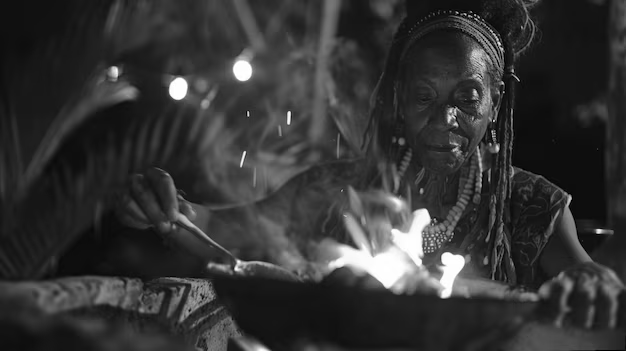
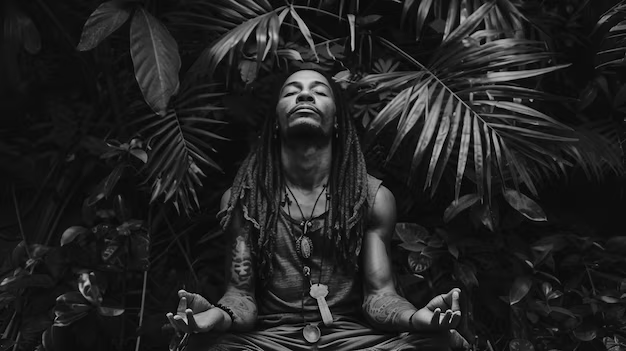
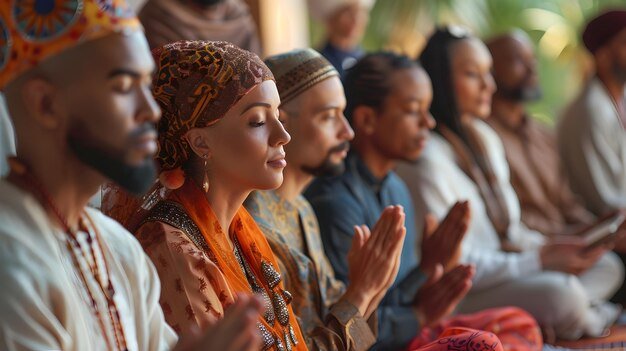
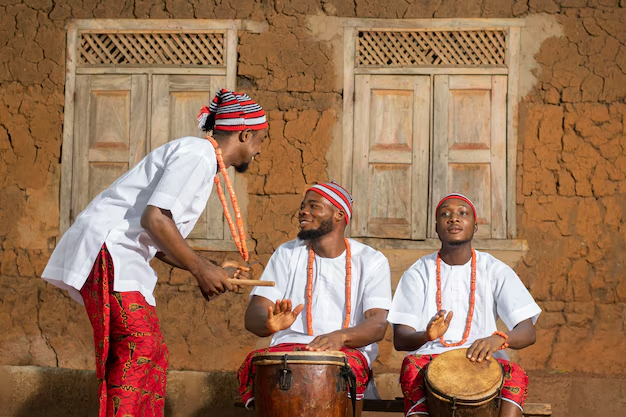

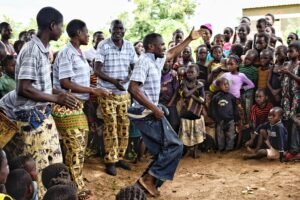

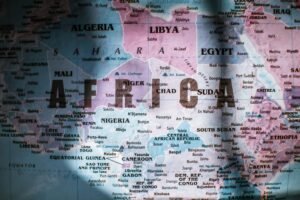
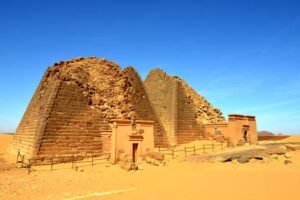
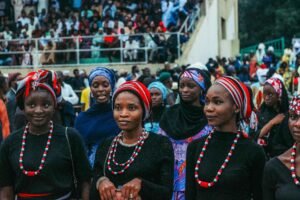




Publicar comentário